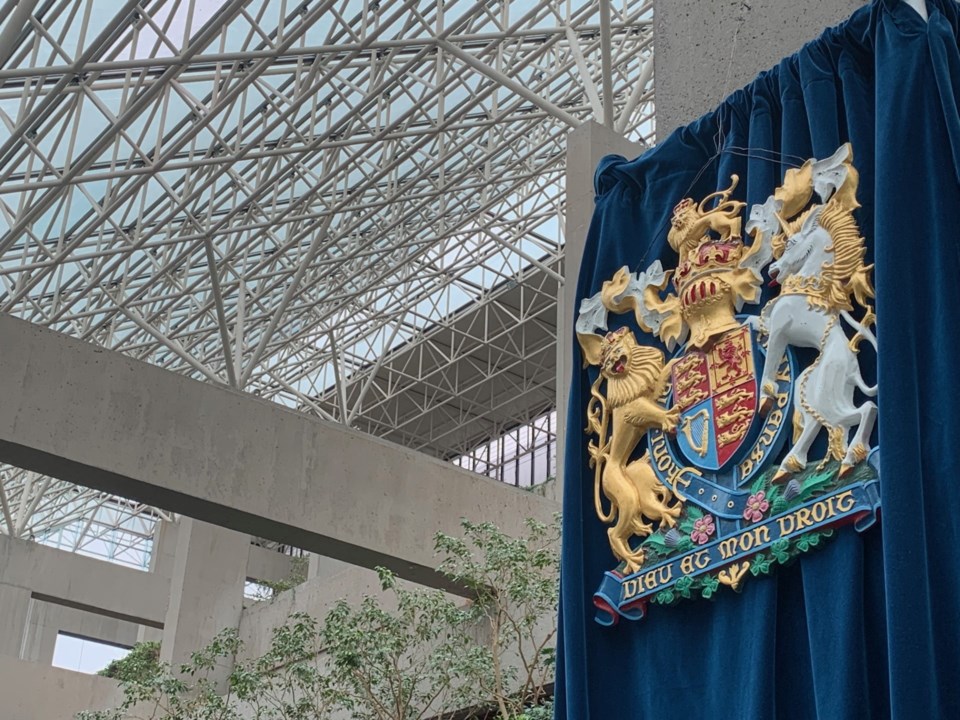A Vancouver sex worker alleges police have breached her privacy by retaining or disclosing old police records after Canada’s sex work laws were changed a decade ago.
“Sex work records constitute private information of a personal and confidential nature and are not evidence of criminality,” said a B.C. Supreme Court May 10, 2023 amended notice of civil claim for a potential class-action suit.
The defendants, however, said there is no reasonable expectation of privacy flowing from a conviction in an open court proceeding or regarding police interaction or charge information.
B.C. sex work activist Susan Davis is spearheading the putative class action.
The notice of civil claim filed in May 2022 initially named as defendants Vancouver Police Department (VPD) Chief Constable Adam Palmer, Royal Canadian Mounted Police Commissioner Brenda Lucki, PRIMECorp, the City of Vancouver, the B.C. minister of public safety and solicitor general, the attorney general of Canada (Royal Canadian Mounted Police and minister of Foreign Affairs), Jane Doe, John Doe, Julia Doe and Julian Doe.
B.C. Supreme Court Justice Catherine Murray struck the action against Lucki June 14.
After several high-profile lawsuits, the Supreme Court of Canada found now-former sex work laws unconstitutional and the federal government was obliged to amend those laws.
The old laws included keeping or being found in a bawdy house for the purposes of prostitution, living on the avails of prostitution and communicating in public for the purposes of engaging in prostitution.
The claim said Davis became aware of the situation when she wanted to volunteer for a community policing foundation board in November 2020. Her record of sex work convictions was disclosed to administrators, board members and others, the claim said.
The claim said knowledge of Davis being a sex worker and advocate is public information. However, she said her control over her biographical information was undermined and she lost the control over who, when and where she chooses to discuss her convictions.
“Dissemination of this knowledge could pose a risk to the plaintiff’s safety or risk of hostile or discriminatory treatment from members of the public,” the claim said.
In the lawsuit, Davis seeks to represent a class of people charged with, convicted of, or had interactions with police pertaining to one or more of those offences.
And, the suit seeks reparations for alleged breaches of B.C.’s Privacy Act, and the Canadian Charter of Rights and Freedoms in relation to the defendants’ retention, use and disclosure of records pertaining to the sex work records.
The May 10 amended notice of civil claim said the defendants currently keep, maintain, consult, disseminate or use records of convictions, charges and police interactions dealing with offences now no longer in the Criminal Code of Canada.
The claim wants those records expunged.
The claim said those records are in such databases as B.C.’s Police Records Information Management Environment controlled by the VPD; Legacy Records Management System, which handles records before March 2001; the Canadian Police Information Centre; the Police Information Retrieval System; the Occurrence/Records Management System; the Police Reporting and Occurrence System; the Canadian Criminal Real time Identification Services; the judicial data management system JUSTIN; and the RCMP’s Ottawa archive of criminal convictions.
The claim said one of more of the defendants transmitted sex work records to immigration, border or policing authorities in other countries such as the United States, Australia, the European Union and member states and other countries.
The claim wants all records removed from the data systems, an order directing the federal attorney general and the minister of foreign affairs to request foreign states to remove those records, a declaration that sex workers' personal security and unreasonable search and seizure Charter rights were violated and unspecified damages.
Defendants’ response
A July 22, 2022 defendants’ response to the initial claim said, “There is no constitutionally protected right to have a criminal charge, conviction, or police interaction record expunged on the basis that the offence was subsequently declared constitutionally invalid.”
Moreover, the response said the high court order requiring Criminal Code changes did not invalidate convictions prior to the laws’ amendment.
But, it said, people can apply for a record suspension, which does not extinguish convictions but prevents disclosure of the record of conviction.
And, the response denied that authorized access to criminal conviction information for which a record suspension has not been ordered for criminal record check or law enforcement purposes is a constitutional breach.
The response said Davis had given written consent to a criminal record check for the South Vancouver Crime Prevention Society.
“Criminal records checks and the dissemination of information generated as a result of such checks carried out in British Columbia must be conducted in compliance with applicable statutory requirements pertaining to the release of personal and criminal record information,” the response said.
Further, it said, any charges and convictions are a matter of public record.
The case remains in the pre-certification stage. That means arguments are being heard about how the case might proceed. A judge would then hear arguments on whether or not the case should continue as a class-action suit. If the judge believes it should, it is then certified and would move to a trial.
